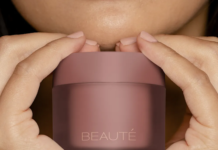Too frequently, I’ve heard folks say things like, “I would love to make my soap, but I’m afraid I’ll get something wrong. Unfortunately, there are numerous fallacies about the process of producing soap bars that scare people away. It’s a shame that these people are missing out on a gratifying, addictive activity because they mistrust themselves when making soap bars alone.
Is it safe to make your own soap bars?
Although making soap entails using lye, a potentially hazardous material, the risk of harm is negligible as long as the user follows safety requirements, wears protective glasses, works where there is enough airflow, and uses common sense to work.
Let’s separate the truth from the fiction and go over the necessary precautionary measures for creating soap. You’ll be comfortably stocking your stores with handmade soap before you know it and worrying less about the problem while making soap.
Potential Dangers of Soap Making
So, if preparing soap at home is safe, why are many folks scared to try it? To manufacture soap, you’ll need to use lye, which is where the fear aspect comes into play.
What Exactly Is Lye?
Lye, also known as caustic soda, is a powerful alkali created when sodium carbonate and calcium hydroxide mix. Sodium hydroxide and calcium carbonate are the two byproducts. When working with lye, you must exercise extreme caution. In addition to emitting poisonous fumes when mixed into a solution, lye can cause the following problems if not handled properly:
- Chemical burns on the skin
- Damage of surfaces
- Explosion
- Be fatal if ingested
- Blindness
- Harm your lungs
Safety Precautions
Now that we’ve discussed the risks of dealing with lye when preparing homemade soap, you might be wondering why we need to use it in the first place. To mention a few, a lot of things we do today which seem so simple are potentially risky activities. How can we get through these things each day in one piece? We use common sense, take extra precautions, and adhere to the prescribed safety procedures. The same rules apply to producing soap. Working with lye is no more harmful than any other high-risk activities you conduct daily, as long as you exercise caution.
- Use Protective Gear
It is essential to wear high-quality safety goggles. You might be able to get by with only a good set of safety glasses, as some protection is better than none, but I’d recommend goggles, especially if you wear glasses. They’ll provide more protection and won’t slide down your nose as spectacles do.
- The Right Equipment
A strong plastic container with a #5 recycle code is the best option for mixing the lye solution. For your safety, if you don’t see a #5 recycling code stamped anywhere, don’t use it. It’s best to keep looking for a plastic pitcher, tiny tub, or something similar.
- Prep Your Work Area
Another thing you need to do is ensure that you prep your work area to ensure that everything is safe for proper soap preparation.
Bottom Line
Making soap bars alone is totally safe. You just need to know what to do, when to do it and how to do it to make the process safe. So, is it safe to make your own bars? Definitely yes. You just need to maintain a safety culture while doing so.





